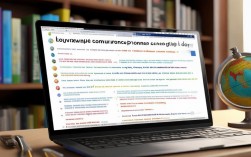Traveling offers countless opportunities to practice English in real-life situations. Whether asking for directions, ordering food, or making new friends, mastering travel-related conversations can enhance your experience and build confidence. Below, we’ll break down essential English dialogue techniques for common travel scenarios, helping you communicate smoothly and naturally.

Airport and Transportation Dialogues
Navigating airports and public transport requires clear communication. Here’s how to handle key exchanges:
Checking In at the Airport
Agent: "Good morning! May I see your passport and boarding pass?"
You: "Here they are. I’d also like to confirm my seat—is window seating available?"
Agent: "Let me check… Yes, 12A is free. Any checked baggage?"
You: "Just one suitcase. Does it meet the weight limit?"
Taking a Taxi
You: "Hi, could you take me to the Grand Hotel, please?"
Driver: "Sure. Do you prefer the highway or city route?"
You: "Whichever is faster—I’m in a bit of a hurry."
Key Tips:
- Use polite phrases like "Could you…?" or "Would it be possible…?"
- Confirm details ("Does this bus go to Central Park?") to avoid mistakes.
Hotel Check-In and Requests
A smooth hotel stay starts with effective communication.
Checking In
Receptionist: "Welcome! Do you have a reservation?"
You: "Yes, under the name Smith. I booked a double room for three nights."
Receptionist: "Perfect. Here’s your key. Breakfast is served from 7 to 10 AM."
Asking for Help
You: "Excuse me, could someone assist with my luggage?"
Staff: "Of course, I’ll call the porter right away."
Key Tips:

- Be specific with requests ("Is there a quieter room available?").
- Learn phrases like "Is there a late check-out option?" for flexibility.
Dining and Food Orders
Ordering food is a daily necessity. Practice these exchanges:
At a Restaurant
Waiter: "Are you ready to order?"
You: "I’d like the grilled salmon with a side salad, please. Could you recommend a local wine?"
Waiter: "The Sauvignon Blanc pairs well with fish."
Handling Dietary Needs
You: "Does this dish contain nuts? I have an allergy."
Waiter: "Let me confirm with the chef—we can adjust the recipe if needed."
Key Tips:
- Use "I’d like…" instead of "Give me…" for politeness.
- Clarify menu terms ("What’s in the ‘Fisherman’s Stew’?").
Sightseeing and Asking for Directions
Getting lost is common, but asking for help shouldn’t be stressful.
Asking for Directions
You: "Excuse me, how do I get to the art museum from here?"
Local: "Walk straight two blocks, then turn left at the fountain."
Joining a Tour
Guide: "This cathedral was built in the 12th century."
You: "Fascinating! Are there any hidden details most visitors miss?"
Key Tips:

- Start with "Excuse me" to politely grab attention.
- Repeat directions ("So, left after the bank?") to confirm understanding.
Shopping and Negotiating Prices
Markets and shops are great for practicing transactional English.
Buying Souvenirs
Vendor: "Handmade ceramics—only $20 each!"
You: "They’re lovely! Do you offer discounts for multiple items?"
Clarifying Sizes
You: "Is this shirt available in medium? I’d like to try it on."
Clerk: "The fitting room is over there—let me know if you need help."
Key Tips:
- Use "How much is this?" instead of "What’s the price?"
- Negotiate politely ("Would you accept $15 for this?").
Making Friends and Small Talk
Casual conversations enrich travel experiences.
Starting a Conversation
You: "This view is incredible! Have you been here before?"
Traveler: "Yes, I come every year. The sunset is even better from the cliff."
Sharing Experiences
You: "I tried scuba diving yesterday—have you done it here?"
Local: "Not yet, but the coral reefs are supposed to be amazing."
Key Tips:

- Open with observations ("This festival is so lively!").
- Ask open-ended questions ("What’s your favorite part of the city?").
Handling Emergencies and Problems
Unexpected situations require calm, clear communication.
At a Pharmacy
You: "I have a terrible headache. Do you have pain relievers?"
Pharmacist: "Here’s ibuprofen. Take one every six hours."
Reporting a Lost Item
You: "I left my bag on the train—who should I contact?"
Staff: "File a report at the lost-and-found office downstairs."
Key Tips:
- Stay concise ("I need help—my passport was stolen.").
- Keep emergency phrases handy ("Where’s the nearest hospital?").
Final Thoughts
Travel pushes us out of comfort zones, but mastering these dialogues ensures smoother interactions. The more you practice, the more natural English conversations become. Next time you’re abroad, embrace every chance to speak—whether haggling at a market or chatting with a fellow traveler. Language isn’t just about words; it’s about connecting with the world.











